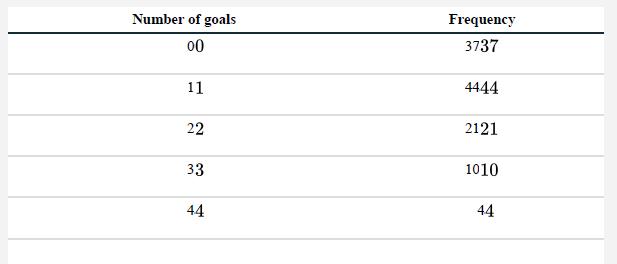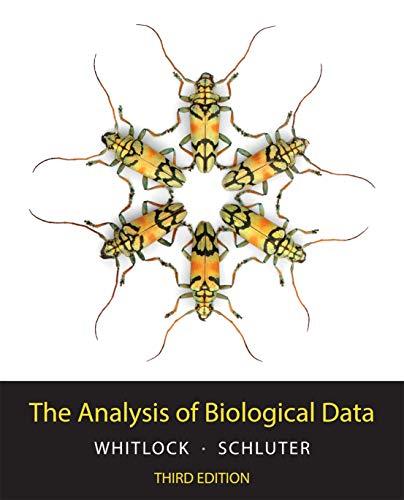Soccer reaches its apex every four years at the World Cup, attracting worldwide attention and fanatic devotion.
Question:
Soccer reaches its apex every four years at the World Cup, attracting worldwide attention and fanatic devotion. The World Cup is widely thought to be the event that decides the best soccer team in the world. But how much do skill differences determine the outcome? If the probability of a goal is the same for all teams and games, and if goals are independent, then we would expect the frequency distribution of goals per game to approximate a Poisson distribution. In contrast, if skill differences really matter, then we would expect more high scores and more low scores than predicted from the Poisson distribution. The following table tallies the number of goals scored by one of the two teams (randomly chosen) in every game of the knockout round of the World Cup from 1986 though 2010.


a. Plot the frequency distribution of goals per team using the data in the table.
b. What is the mean number of goals per game?
c. Using the Poisson distribution, calculate the expected frequency of games and teams with 0, 1, 2, …, 5 goals, assuming independence and equal probability of scoring.
d. Overlay the expected frequencies calculated in part (c) on the graph you created in part (a). Do they appear similar?
e. If skill differences do not matter, would you expect the variance in the number of goals per team and side to be less than, equal to, or greater than the mean number of goals? Calculate the variance in the number of goals per team and side. How similar is it to the mean? What would you expect the ratio of the variance to the mean for the number of goals to be if these data followed a Poisson distribution?
Step by Step Answer:

The Analysis Of Biological Data
ISBN: 9781319226237
3rd Edition
Authors: Michael C. Whitlock, Dolph Schluter





